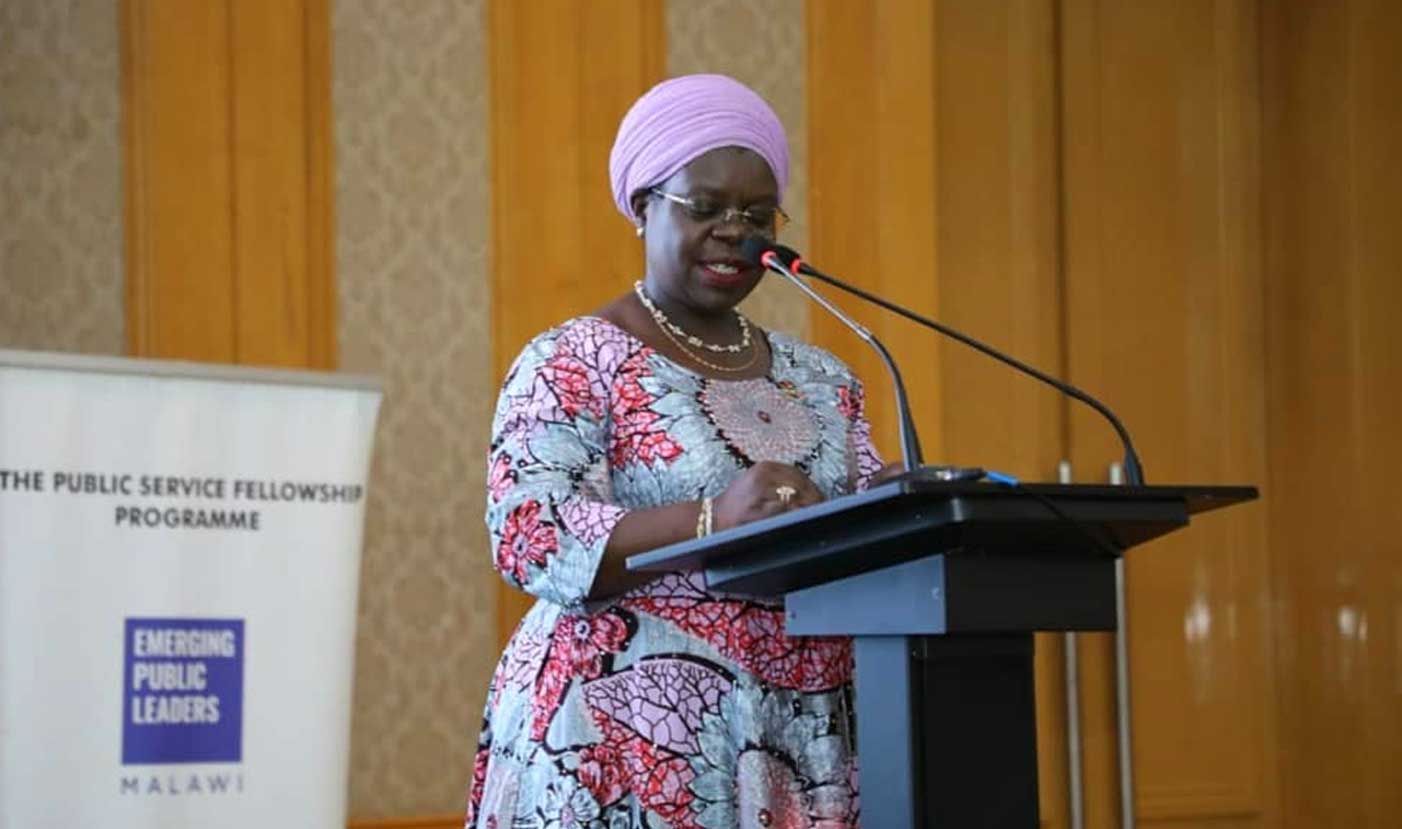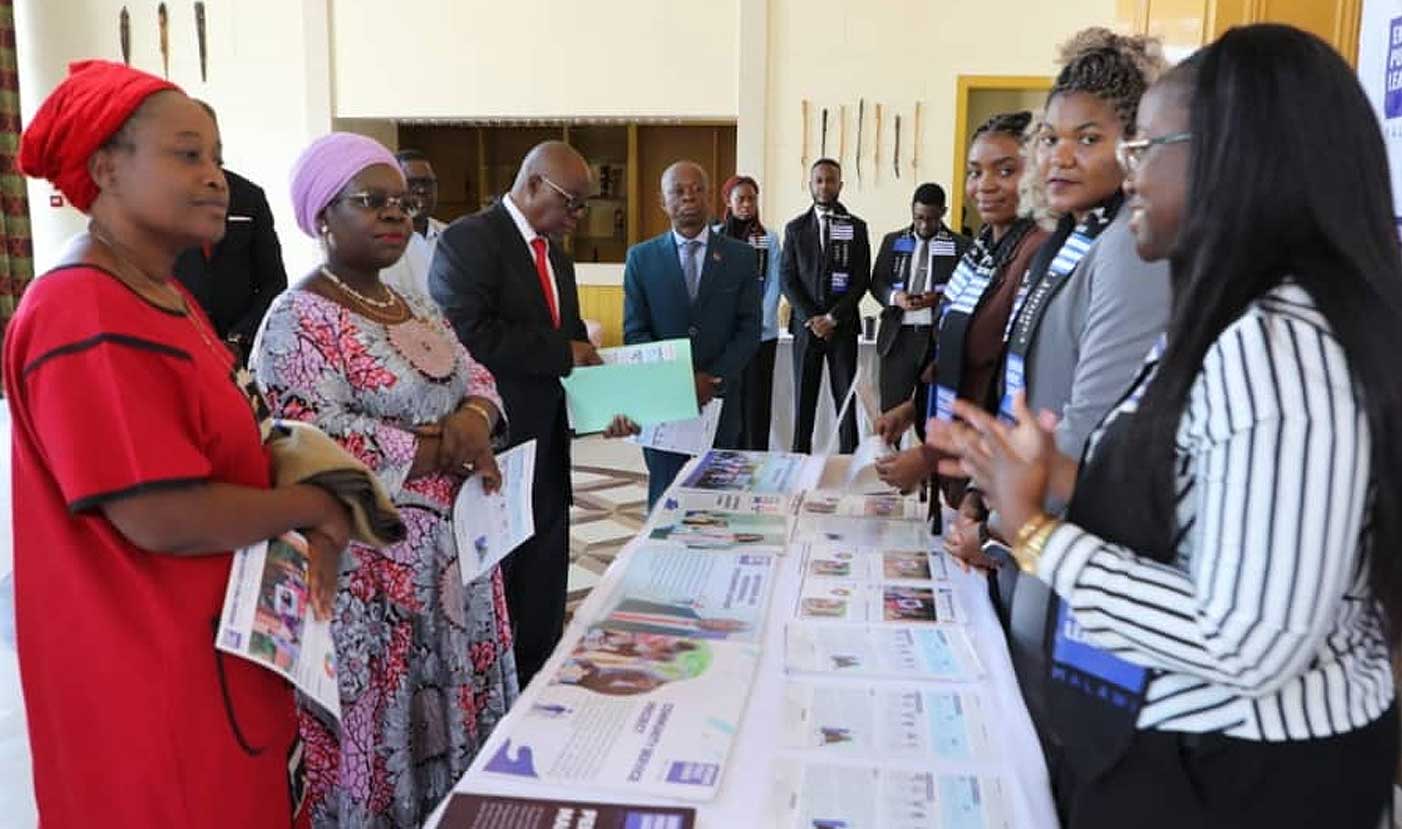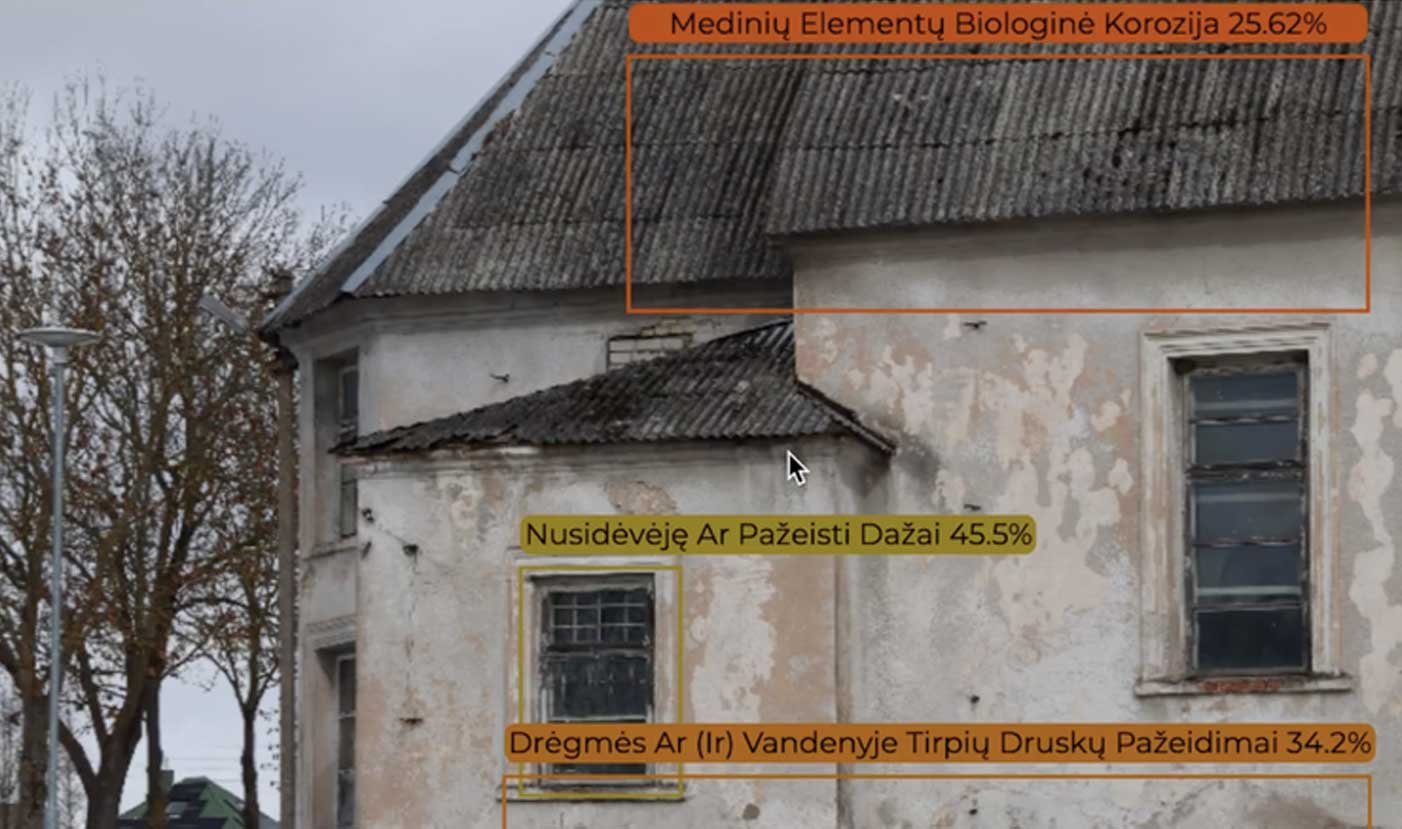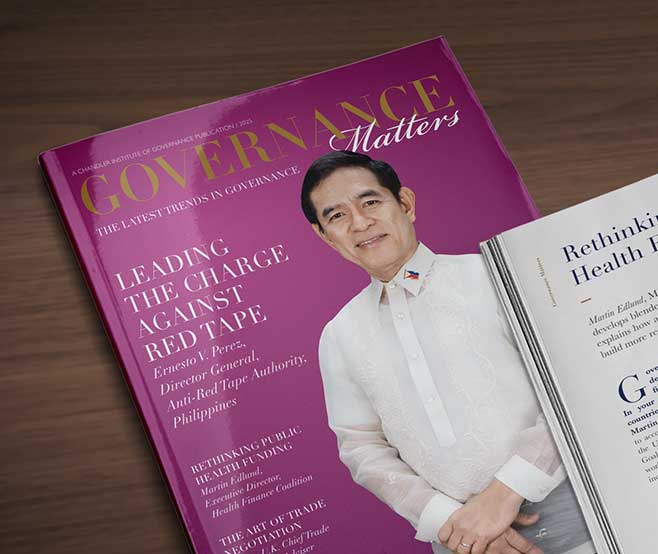Discipline, Delivery, and Digital Skills: Inside Malawi’s Civil Service Shake-Up
Colleen Pempho Zamba, Secretary to the President and Cabinet of Malawi, discusses the civil service’s central role in realising the country’s national vision, and shares what it takes to embed a culture of discipline, accountability, and delivery.
Lorem ipsum dolor sit amet, consectetur adipiscing elit, sed do eiusmod tempor incididunt ut labore et dolore magna aliqua. Ut enim ad minim veniam, quis nostrud exercitation ullamco laboris nisi ut aliquip ex ea commodo consequat. Duis aute irure dolor in reprehenderit in voluptate velit esse cillum dolore eu fugiat nulla pariatur.
Heading 1
Heading 2
Heading 3
Heading 4
Heading 5
Heading 6
Lorem ipsum dolor sit amet, consectetur adipiscing elit, sed do eiusmod tempor incididunt ut labore et dolore magna aliqua. Ut enim ad minim veniam, quis nostrud exercitation ullamco laboris nisi ut aliquip ex ea commodo consequat. Duis aute irure dolor in reprehenderit in voluptate velit esse cillum dolore eu fugiat nulla pariatur.
Block quote
Heading 6
Ordered list
- Item 1
- Item 2
- Item 3
Unordered list
- Item A
- Item B
- Item C
Bold text
Emphasis
Superscript
Subscript
Governance Matters: You have held senior posts across Malawi’s government, worked internationally with the United Nations Development Programme (UNDP), and now serve as Secretary to the President and Cabinet (SPC). How has that experience prepared you for the responsibilities of your current role?
Colleen Pempho Zamba: That preparation started early in my career, when I was serving as Principal Secretary. In that role, I was working closely with the former SPC, so I became quite familiar with the responsibilities of the role.
I was later brought back to the Ministry of Finance to oversee the country’s economic programme, and then seconded to the Reserve Bank, where I worked in the Governor’s office and across departments. I was subsequently recalled to lead the Department of Debt and Aid Management, where I oversaw Malawi’s first successful decision point under the Heavily Indebted Poor Countries (HIPC) initiative, which helps low-income countries reduce debt and invest in poverty reduction. It was a significant and proud moment for my country.

After that, I became Principal Secretary for Economic Affairs and Trade, a role I served in for three years before moving out to work with Professor Jeffrey Sachs, the U.S. development economist. Then I got the opportunity to work with the UNDP, which assigned me to Nigeria as an economic adviser. I worked with the Nigerian government for six years and was then moved to Zambia, Eswatini, and Lesotho. It was an eye-opening experience.
Eventually, the President called me back home to contribute to the building of a new Malawi. I returned as one of his chief advisers on the Sustainable Development Goals (SDGs) and international cooperation, and I also led the Presidential Delivery Unit (PDU). In 2022, I was appointed as SPC. It has been a demanding role, but also a deeply fulfilling one.
You cannot move a system without people. The personnel – the civil service – is the greatest asset in the process.
How are you shaping the civil service to deliver transformation across Malawi more broadly?
Transforming the civil service is in line with the President’s vision: to deliver job creation, wealth creation, and food security, all driven by agro-industrialisation. We believe that trade, investment, and shared growth will follow.
But to make this happen, we need the right enablers, such as infrastructure, health, and education. People are at the centre of this. You cannot move a system without people. The personnel – the civil service – is the greatest asset in the process. Managing personnel is my role. The civil service is the nerve centre of the country’s transformation agenda.

Malawi 2063 sets out the country’s long-term development goals. Delivering any complex, long-term national plan is challenging for every country. How do you and the Office of the President and Cabinet (OPC) coordinate and drive progress on this plan?
Your question included part of the answer: the role we play in coordination. We have Malawi 2063, the country’s long-term vision to become an inclusive, wealthy, and self-reliant nation by the year 2063. And we have the Malawi 2063 First 10-Year Implementation Plan (MIP-1), which sets out the specific priorities and actions for the first ten years of achieving Malawi 2063. The civil service is the nerve centre of implementation, and the OPC is the anchor. Our role is to coordinate ministries to ensure they align with national priorities and are working towards a common vision.
For example, sometimes I would receive memos or plans in meetings, and they were about digitalisation, but not aligned with the national e-Government strategy. We would step in and say that e-government has to be involved. My previous work with the PDU helped me a lot; I had been away for years, but with this new government, the President was very clear about his agenda: this is about delivery. We ran several labs, including a digitalisation lab. Through those, we saw the misalignments. For instance, the Ministry of Health had over 40 standalone systems – none talking to each other. Every development partner had their own system. Part of our role is making sure that we are much better aligned and coordinated.
If a government is serious about improving delivery, it must make a deliberate and sustained investment in its people.
You have emphasised that the civil service’s greatest asset is its people. In the past two years, you have launched the Malawi School of Government, introduced the country’s first Civil Servants’ Medical Scheme, and rolled out a digital skills programme for government staff. What impact have these initiatives had on civil servants’ motivation and capabilities?
We recognise that public service delivery is linked to staff well-being, skills, and morale. When civil servants are demotivated, their capacity to deliver effectively is compromised. If a government is serious about improving delivery, it must make a deliberate and sustained investment in its people.
Officially launching the Malawi School of Government in 2024 was a critical milestone. It was created by an Act of Parliament in 2022 through the merger of the Malawi Institute of Management and the Staff Development Institute. We worked with partners including the Chandler Institute of Governance (CIG) to build a new institution that will help shape a new generation of public sector leaders. More broadly, it helps strengthen the public and private sectors by providing training and support to improve leadership, ethics, and overall performance across government.
Another key milestone was the Civil Servants’ Medical Scheme, a government-sponsored health insurance programme managed through the Medical Aid Society of Malawi. It has never been done before. Now civil servants and teachers can join with their families. They just contribute a small amount and access affordable, high-quality healthcare. That brings dignity and motivation to the workforce.
Digital training is also key. We want a civil service that is tech-literate. When I came in, I noticed a big gap between how things were done before and now. There has been so much change – technology, systems. We need to bring our people up to speed. That is why digital skills and mindset training are so important.
When I attended my first Cabinet meeting, for example, I saw four papers on the agenda. One was printed double-sided, another single-sided. The papers used different tones, and one was missing a government logo. I was stunned. From that point on, I said, “This will not happen again.” I started holding monthly meetings with Principal Secretaries to align standards and expectations of how things are supposed to be done. Now we do those meetings quarterly. Submissions have improved drastically – bills are now submitted in a consistent, professional format. Even the President noticed and commended the quality.
It may sound small, but it reflects discipline, quality, and professionalism. And reflects the many returns that come from training and investing in people.

You have been a staunch advocate of the need for discipline and commitment within the civil service, and the government of Malawi has worked to strengthen the civil service performance management system. How do you think these systems can send a strong signal that professionalism and performance are key?
Sometimes when you are doing your work, it may seem as if the public does not notice, but they do. Accountability is central. People want to see that public resources are used as intended. And in the era of social media, everything is visible. Discipline becomes essential.
I always quote the evangelist Billy Graham, who said the three most important things are character, character, and character. That is what discipline is – character.
Key elements include:
To enforce discipline, we rely on systems like the Individual Performance Management System, which assesses and aligns civil servant performance with national development priorities, including Malawi 2063 and MIP-1. The latter is the first of four 10-year implementation plans, setting out specific programmes, targets, and investments to achieve that vision. Every Principal Secretary or Director has key results to achieve. Those are monitored and assessed. That is why we developed the sanctions and rewards framework, which I see as one of the most important components.
We now use this performance system to track not just results, but also to check in on a huge range of areas – for instance, are audit recommendations being followed up? Are declarations of assets being made? All of that is tied to performance.
We started with 11 ministries. Now we are rolling it out further. I see it as one of our biggest achievements in accountability and discipline.
You must lead with purpose and values, and understand why you are there – because you are a servant of the people.

Malawi has re-engaged with the Open Government Partnership (OGP), a global initiative where countries commit to National Action Plans that promote transparency and citizen participation. Malawi’s current plan runs from 2023 to 2025. What commitments are included in it, and how do they support governance reform?
I’m proud to say that we were accepted back into the OGP when I had only been in this role for five or six months. We worked hard to make it happen. Our re-engagement with the OGP reflects our renewed commitment to transparency, accountability, and citizen participation.
The 2023–2025 National Action Plan focuses on five key areas: open contracting and beneficial ownership transparency; political party financing transparency, which has been a major issue here; e-government and information and communications technology (ICT) adoption; natural resource governance transparency, especially now that Malawi is discovering new mineral deposits; and open parliament and debt transparency. These commitments address critical accountability gaps and help institutionalise reforms across the whole of government. All are coordinated by the OPC, and they are part of the governance, ICT, and digitalisation agenda that underpins the President’s delivery vision.
You can also see this commitment to governance in our approach to the Anti-Corruption Bureau. For the first time, it has been heavily funded by this government, and we have recruited more than 50% of its staff under this administration. That investment in recruitment and training reflects the President’s belief in governance, and it helps build public trust that we are the custodians of the nation’s resources as we deliver the public good.
What advice would you offer to a young leader aspiring to follow your path in public service?
Public service is a calling. You must lead with purpose and values, and understand why you are there – because you are a servant of the people. When you are a servant, your own interests come second; the interests of the nation come first. Your decisions can affect millions.
Along the way, you will face systems that need reform, people who resist change, and forces that push for self-interest. It involves making tough decisions and, at times, stepping on people’s toes. But we all have something inside us – a power that God has already entrusted to us – and when you activate it, it works.
Second, invest in your own growth. The public sector needs agile, knowledgeable, adaptive leaders. That is what our partners, such as CIG, have been helping us to build.
Third, be courageous and collaborative. Respect is important, as is humility. But do not mistake politeness for weakness. Respect people, but also be determined to follow through on what needs to be done. You have a vision to deliver. I always think of a lesson Tony Blair once shared with me: “When you are driving a bus and know your destination, you do not worry about the bumps,” he said. “If you stop every time someone yells, ‘Stop’, others will take over the wheel. Keep going.”
So, I would tell that young leader to stay focused. Work with respect, courage, and collaboration – and above all, character. Character, integrity, and groundedness are essential. If I had not embraced that, I would not be here today.

Heading 1
Heading 2
Heading 3
Heading 4
Heading 5
Heading 6
Lorem ipsum dolor sit amet, consectetur adipiscing elit, sed do eiusmod tempor incididunt ut labore et dolore magna aliqua. Ut enim ad minim veniam, quis nostrud exercitation ullamco laboris nisi ut aliquip ex ea commodo consequat. Duis aute irure dolor in reprehenderit in voluptate velit esse cillum dolore eu fugiat nulla pariatur.

Block quote
Ordered list
- Item 1
- Item 2
- Item 3
Unordered list
- Item A
- Item B
- Item C
Bold text
Emphasis
Superscript
Subscript
Lorem ipsum dolor sit amet, consectetur adipiscing elit, sed do eiusmod tempor incididunt ut labore et dolore magna aliqua. Ut enim ad minim veniam, quis nostrud exercitation ullamco laboris nisi ut aliquip ex ea commodo consequat. Duis aute irure dolor in reprehenderit in voluptate velit esse cillum dolore eu fugiat nulla pariatur.
Endnotes
- Item 1
- Item 2
- Item 3


Colleen Pempho Zamba is the Secretary to the President and Cabinet (SPC) of the Republic of Malawi, with over 35 years of experience in economic policy and development. She holds a Master’s degree in Philosophy in Economic Planning from the University of Glasgow and a Bachelor’s degree in Economics from the University of Malawi. Zamba has served in senior roles at the United Nations Development Programme and within Malawi’s government, including as Principal Secretary for Economic Affairs and Trade, and has championed sustainable development and public sector reform.
Lorem ipsum dolor sit amet, consectetur adipiscing elit, sed do eiusmod tempor incididunt ut labore et dolore magna aliqua. Ut enim ad minim veniam, quis nostrud exercitation ullamco laboris nisi ut aliquip ex ea commodo consequat. Duis aute irure dolor in reprehenderit in voluptate velit esse cillum dolore eu fugiat nulla pariatur.













